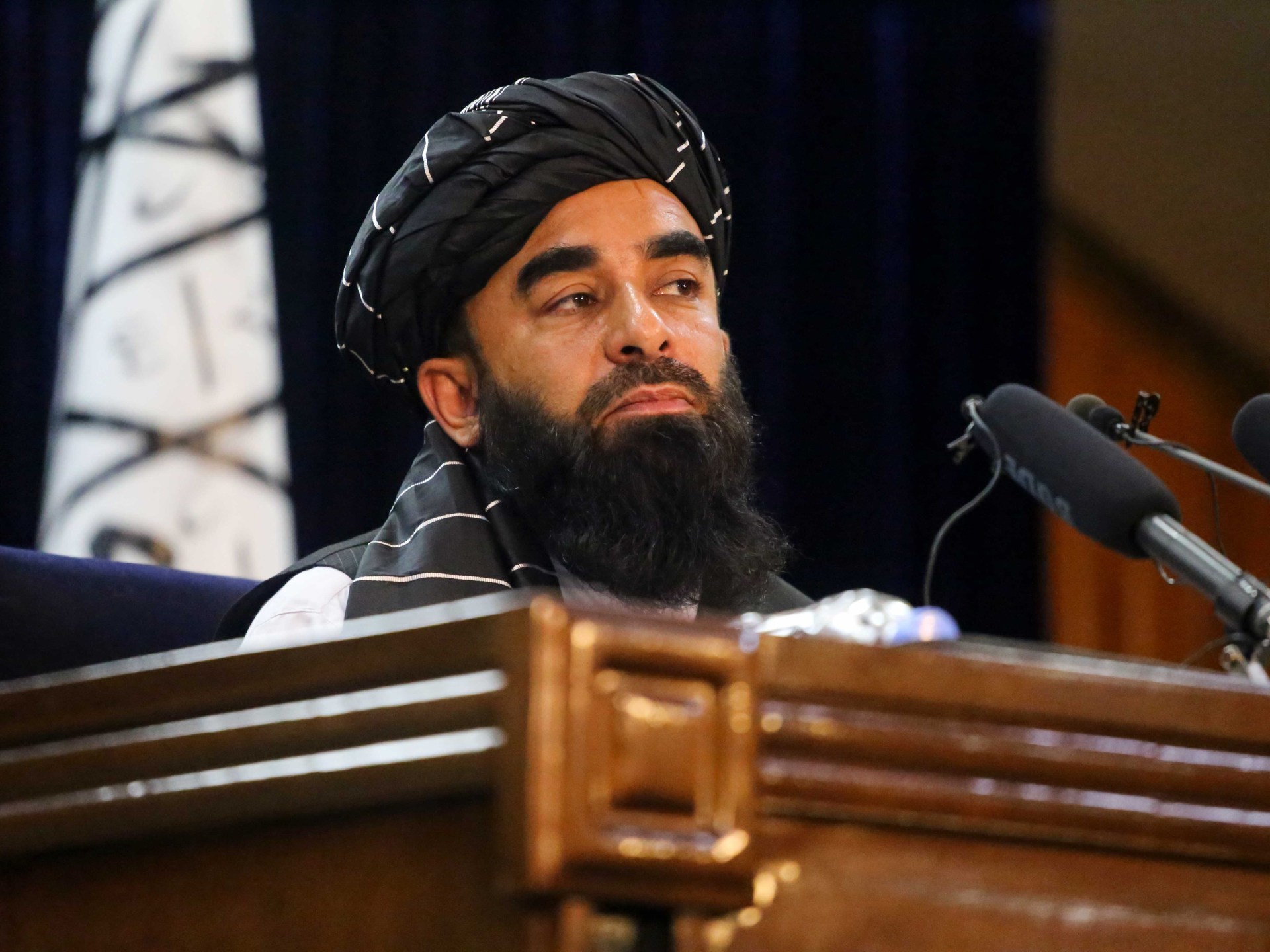Taliban top spokesman asked to work from Kandahar
Zabihullah Mujahid asked to work from Kandahar in addition to Kabul in a move seen as an assertion of control by the Taliban chief.
Zabihullah Mujahid, the main spokesman for Afghanistan’s Taliban administration, has been asked to work from the southern city of Kandahar in addition to the capital Kabul, a Taliban spokesperson has confirmed with Al Jazeera.
Innamullah Samangani, another deputy spokesman in the Islamic Emirate of Afghanistan, has been transferred to Kandahar in one of the first cases of officials being shifted under the Taliban administration since it returned to power in August 2021.
Samangani will now be the head of the press and information bureau at the provincial level, a Taliban source told Al Jazeera.
The move is being seen as an assertion of power by the Taliban supreme leader Haibatullah Akhunzada, who is based in the southern city located about 450km (280 miles) to the north. Akhunzada rarely appears in the public and mostly stays in Kandahar – the birthplace of the Taliban movement.
Abdul Haq Hammad, head of the media watchdog at the Afghan Ministry of Information and Culture, told Al Jazeera that Mujahid’s deputy Bilal Karimi will still be based in Kabul while the former will shuttle between Kabul and Kandahar.
The reason for the latest changes – which highlight the rising importance of Kandahar – has not been revealed by the information ministry.
Obaidullah Baheer, a lecturer of transitional justice at the American University of Afghanistan, believes that the supreme leader took the decision in order to consolidate power around him in Kandahar.
“The emir does seem like he is very paranoid about his own ministers, so he is trying to make sure everything is under his control,” Baheer told Al Jazeera. “It also shows his lack of trust of the others in Kabul, so he is trying to take as much control as he can … this, in the absence of constitutionalism and of any division of power, will keep happening.”
It’s believed that the supreme leader Akhunzada has been pushing for hardline policies and is said to be behind the decisions to ban girls and women from education and to bar women from working in NGOs.
Mujahid, who remained in hiding during the Taliban’s 20-year war against United States-led foreign forces, held a series of open press conferences in the wake of the Taliban’s takeover in 2021, promising women’s rights and media freedom.
But the group has since gone back on its promises, enforcing widespread restrictions on women. Mujahid initially said that schools will reopen after an infrastructure upgrade to make way for gender-based segregation in classes. Going forward, however, the group has only doubled down announcing further curbs on women.
Earlier this week, the Taliban barred Afghan women employees of the United Nations from working.
Even so, several senior Taliban leaders have raised their voices in support of women’s education and their rights to work guaranteed under Islam.




